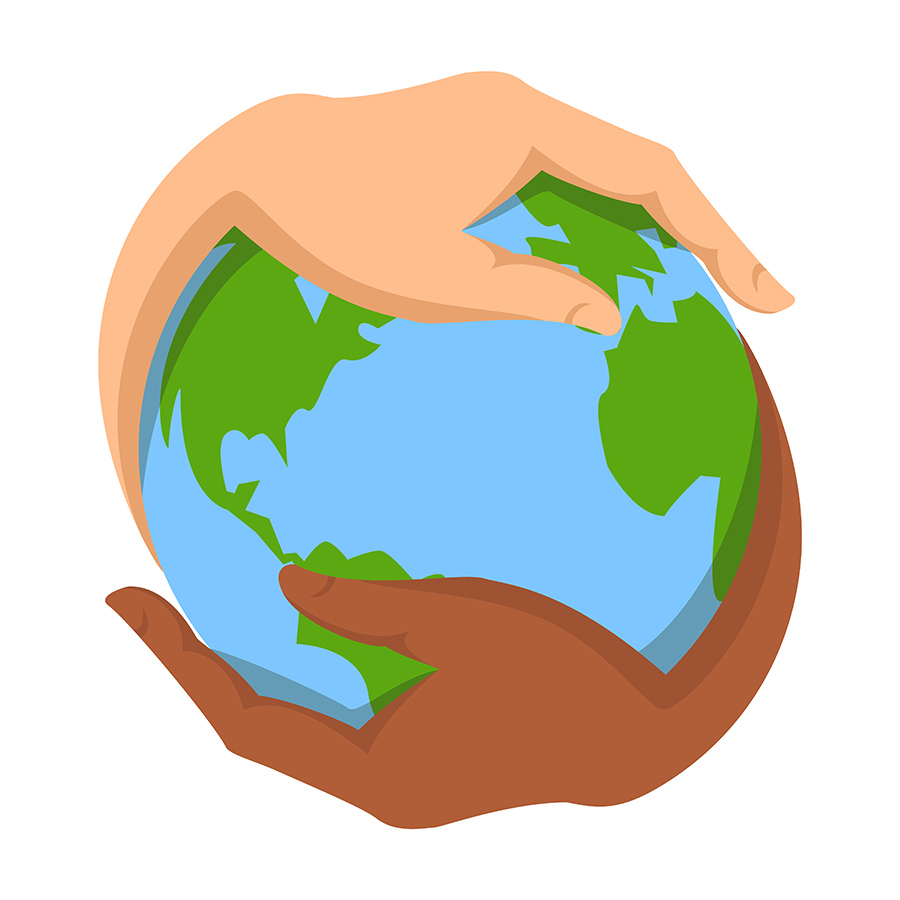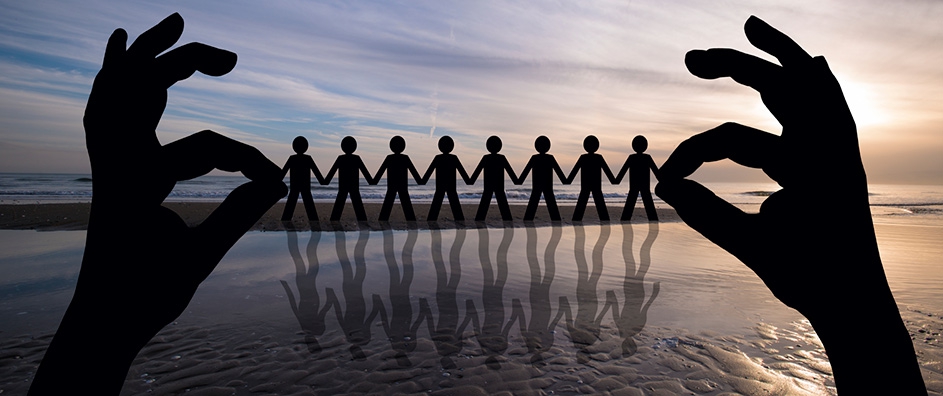The views expressed in our content reflect individual perspectives and do not represent the authoritative views of the Baha'i Faith.
Every keen observer knows that the problems facing communities and neighborhoods in every region of our world require a global effort guided by a new set of social and moral principles.
To be effective in addressing the global issues of poverty, climate change, economic and gender inequality, injustice, ethnic tensions and religious extremism, these new principles must do more than educate us about the challenges we face; they must inspire us to embrace the principle of the oneness of humanity. They must expand our consciousness.
The idea of the oneness of humanity is often met with suspicion and confusion. How is it possible that we are one when we are so different and so divided, you might wonder? Even those who pray earnestly for peace often feel that human beings simply cannot find a way to mend the wounds of the past and forge ahead together as one human race.
 We could be forgiven for doubting that humanity could ever live together peacefully on this planet. Our history books are filled with accounts of carnage, of gruesome wars, of crime in high places, corrupt leaders, and scores of peoples displaced from their native lands by invading forces. Our religious history, in particular, has often been defined by wars waged in the name of God and by heinous acts to maintain dominance or to evoke conversions from the weak and dispossessed.
We could be forgiven for doubting that humanity could ever live together peacefully on this planet. Our history books are filled with accounts of carnage, of gruesome wars, of crime in high places, corrupt leaders, and scores of peoples displaced from their native lands by invading forces. Our religious history, in particular, has often been defined by wars waged in the name of God and by heinous acts to maintain dominance or to evoke conversions from the weak and dispossessed.
We certainly cannot rewrite history—nor should we try. We can learn many valuable lessons from our past mistakes. Despite the hard lessons of the past, and despite the overwhelming global challenges we still face, the human spirit shared by each of us always desires to evolve, to become something grander, to explore the unknown and to imagine the seemingly impossible.
What should we make of our innate desire to evolve? Where can we turn for guidance on how to address the pressing needs of a world that increasingly resembles a global village? More than six million Baha’is around the world believe the teachings of Baha’u’llah, the prophetic 19th century founder of the Baha’i Faith, reveal cogent answers to the social and moral dilemma of our age; questions related to our collective identity as human beings, the equality of men and women, justice, global peace and prosperity, and the practical steps required to establish a lasting peace on this planet. Baha’u’llah taught that “the earth is but one country and mankind its citizens.” He proclaimed in poetic and unforgettable language that:
…the time must come when the imperative necessity for the holding of a vast, an all-embracing assemblage of men will be universally realized. The rulers and kings of the earth must needs attend it, and, participating in its deliberations, must consider such ways and means as will lay the foundations of the world’s Great Peace amongst men. – Tablets of Baha’u’llah, p. 164.
But no matter how inspired we might become by reading profound words that elevate our thinking, the inertia of entrenched mental states often cause us to be fearful and to revert to old patterns of behavior—to withdraw to the familiar or to shy away from challenging the status quo. Fear, as every wise philosopher has reminded us, represents the greatest enemy of our collective progress.
What will unfold in this age, Baha’is believe, is not merely a new system of social and spiritual beliefs, as has happened in the past, but a global expansion in human consciousness that will gradually awaken humanity to the self-evident truth of its spiritual oneness. The Universal House of Justice, the democratically-elected governing body of the Baha’i Faith, touches on this theme in The Promise of World Peace, a compelling essay addressed to the peoples of the world in 1985:
World order can be founded only on an unshakeable consciousness of the oneness of mankind, a spiritual truth which all the human sciences confirm. Anthropology, physiology, psychology, recognize only one human species, albeit infinitely varied in the secondary aspects of life. Recognition of this truth requires abandonment of prejudice — prejudice of every kind — race, class, colour, creed, nation, sex, degree of material civilization, everything which enables people to consider themselves superior to others. –The Promise of World Peace, p. 4.
Life on this planet, in whatever region of the globe, cannot possibly benefit from continued divisions fueled by religion, economics and ethnicity. In an interconnected world where a child in Japan can wake up to play online with a child in the Caribbean, we can no longer pretend that any real borders separate us. At a time when more and more of us have become painfully aware of the global nature of the problems facing our world, unity –a fundamental unity of heart and soul—no longer seems a fanciful notion, but has become necessary to ensure our collective survival.
Peace on earth, the solemn prayer of peoples of all faiths, is not an idealistic goal; it is practically achievable in a world where human consciousness has expanded to such a degree that the oneness of humanity is widely perceived as a fundamental truth:
The whole world must be looked upon as one single country, all the nations as one nation, all men as belonging to one race. Religions, races, and nations are all divisions of man’s making only, and are necessary only in his thought; before God there are neither Persians, Arabs, French nor English; God is God for all, and to Him all creation is one. We must obey God, and strive to follow Him by leaving all our prejudices and bringing about peace on earth. – Abdul-Baha, Paris Talks, p. 131.
















Comments
Sign in or create an account
Continue with Googleor